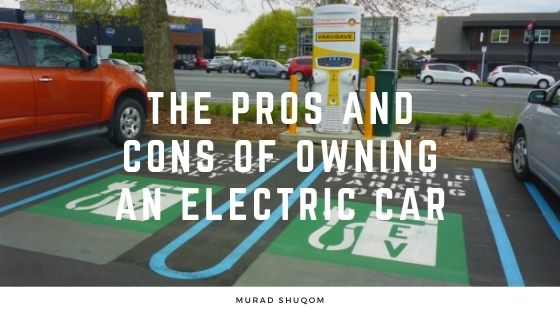As people strive to become more energy-efficient, the electric car’s popularity is steadily increasing and becoming as common as Internal Combustion Engine (ICE) cars. Rather than using petrol or diesel gas engines to power the car as ICE cars do, electric cars are powered by a rechargeable battery-powered engine that can be charged (either for free or a fee) at public charging stations. If you’re considering getting an electric car, it would be wise to consider the pros and cons of owning such a vehicle before making a purchase.
Pros
- Better for the environment: Because these cars are fully electric, they’re better for the environment than ICE vehicles. Electric cars don’t use an exhaust system, so they release no emissions into the air like gas engines do. This helps keep the air cleaner and produces fewer greenhouse gases.
- Electricity is renewable while gasoline is not: Unlike gas-powered engines, which rely on using oil (a non-renewable resource), electric cars can be powered by renewable energy sources such as solar, wind, and water power. Those who take it a step further and install solar panels into their home are able to power their electric cars in their garages as well. Electricity is also cheaper than gas, costing a third of what gas-powered cars do to run.
- Less frequent (and less expensive) maintenance: No gas means no oil, which means no more oil changes to worry about for your car. Maintenance that is typically associated with gas engines will also become a thing of the past. Since electric cars are easier on the brakes, you’ll need to worry about brake replacements less than you do with ICE cars.
Cons
- Shorter range of travel: Unfortunately, electric cars can’t travel as far as gas-powered cars can. Though companies continue to work on finding ways to improve this range, electric cars can still only travel between 60 and 100 miles on a full charge. On the other hand, gas-powered cars can sometimes make it up to 400 miles on a full tank of gas.
- Recharging takes time: While filling a gas tank up can take a few minutes at the gas station, recharging the battery of an electric car will take much longer. Depending on the model, it can take electric cars up to 20 hours to fully charge (though newer models take about four hours). Having a charging station in your garage can make this more manageable, though, and there are kits that can help cut down the recharge time of your vehicle.
- Difficult to find a charging station: While some areas have a plethora of electric vehicle (EV) charging stations to stop at, this isn’t the case for everywhere. Don’t expect to take a road trip in an electric car anytime soon unless you know where recharging stations are along your route. This may not be an issue for much longer as more spots pop up around the country, but until then, this will be an obstacle to overcome when making trips anywhere.

